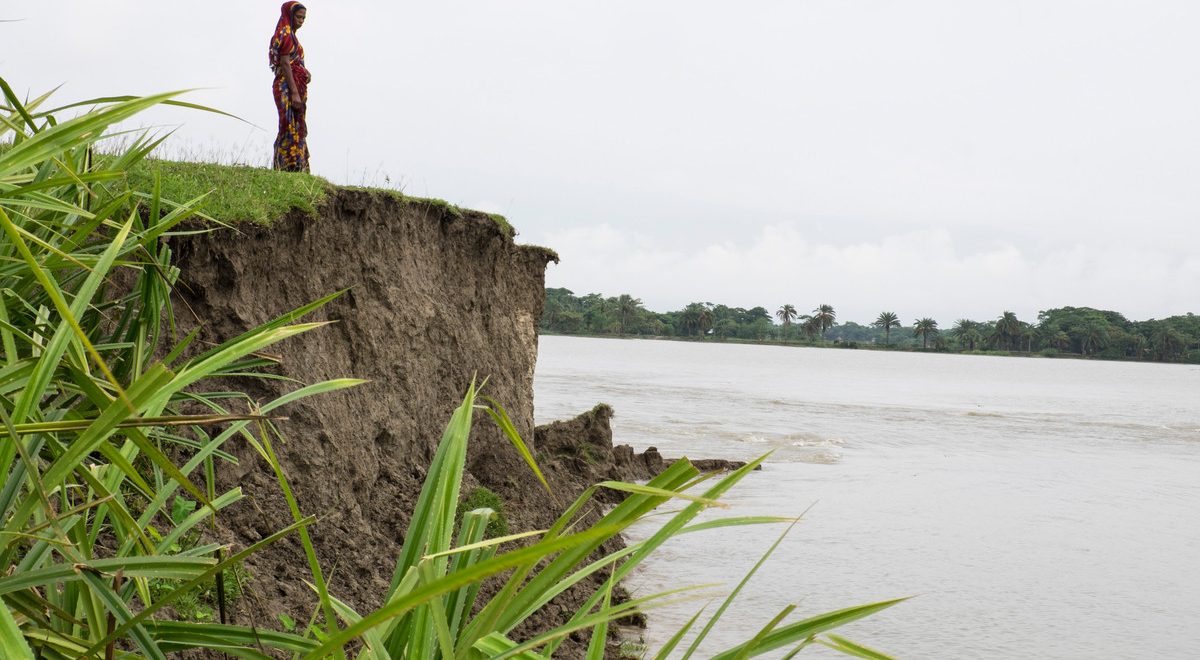As rumors abound that the Trump administration is preparing to withdraw the United States from the Paris Agreement on climate change, Mr. Trump left Washington D.C. to spend the weekend at his mansion in Mar-a-Lago – what his team is calling the “Winter White House.”
Trump has claimed that “the concept of global warming was created by and for the Chinese” and that it is a “hoax.” But data from the National Oceanic and Atmospheric Administration projects that sea levels will rise by more than six feet by the end of the century. If this happens, much of Trump’s Winter White House will be swallowed up.
The concept of global warming was created by and for the Chinese in order to make U.S. manufacturing non-competitive.
— Donald J. Trump (@realDonaldTrump) November 6, 2012
Ice storm rolls from Texas to Tennessee – I’m in Los Angeles and it’s freezing. Global warming is a total, and very expensive, hoax!
— Donald J. Trump (@realDonaldTrump) December 6, 2013
While Trump and his Big Oil climate denier cabinet continue to see natural resources only as a source of profit, and ignore the impacts of their actions on the environment and millions of people around the world, here at ActionAid we stand with the people whose lives and livelihoods are at risk from climate change.
We support local farmers in The Gambia who were seeing their rice crops dying as salt water from the rising seas mixed with the fresh water they use to irrigate their crops. And we’ve also worked with farmers in Senegal to change the way they farm so they can continue to feed their families.
We also know that access to information can be a challenge in countries like Senegal and The Gambia where we’re doing this work. Not everyone is able to watch the TV or get online. That’s why we work with a group of amazing women called Kanyelengs.
The Kanyelengs are traditional communicators – powerful women who write their own songs about important issues like climate change, and then travel around their area performing them for people within their communities. Although they sing and dance, their songs carry a serious message. And as local farmers are quick to acknowledge, they learn new things from the women’s songs that help them adapt the way they farm for the changing climate.
Another clear indicator of climate change is the more frequent and more extreme weather we’re seeing around the world.
We work with local people in some of the worst affected countries like Bangladesh to make sure they’re prepared for when emergencies happen. They get training on how to advocate with their local governments for much-needed disaster response services and how to evacuate their villages without causing panic. Our women’s rights focus has meant that women play a leading role in disaster response, working alongside men to rebuild houses and get their communities back on their feet.
We know from what we’re seeing around the world that climate change is real, and it’s hitting the world’s poorest and most marginalized people hardest.
Some in the Trump administration have threatened to withdraw the United States from the Paris Climate Agreement. While this agreement is far from perfect – it’s neither strong enough to fully address the climate crisis nor fair to poor countries – it is a key tool for ensuring the world works together on climate action. Abandoning it sends the wrong signal to our international partners at a time when cooperation is urgently needed.



